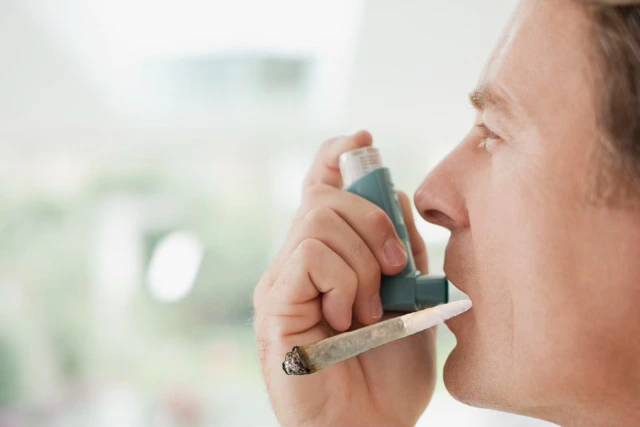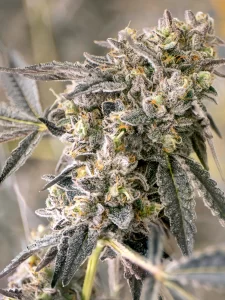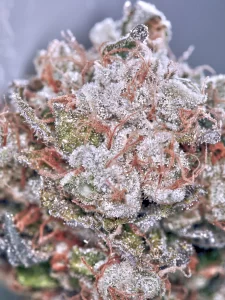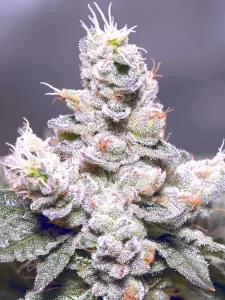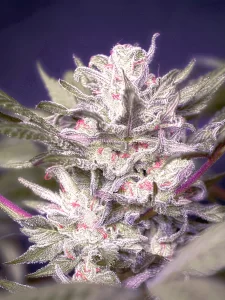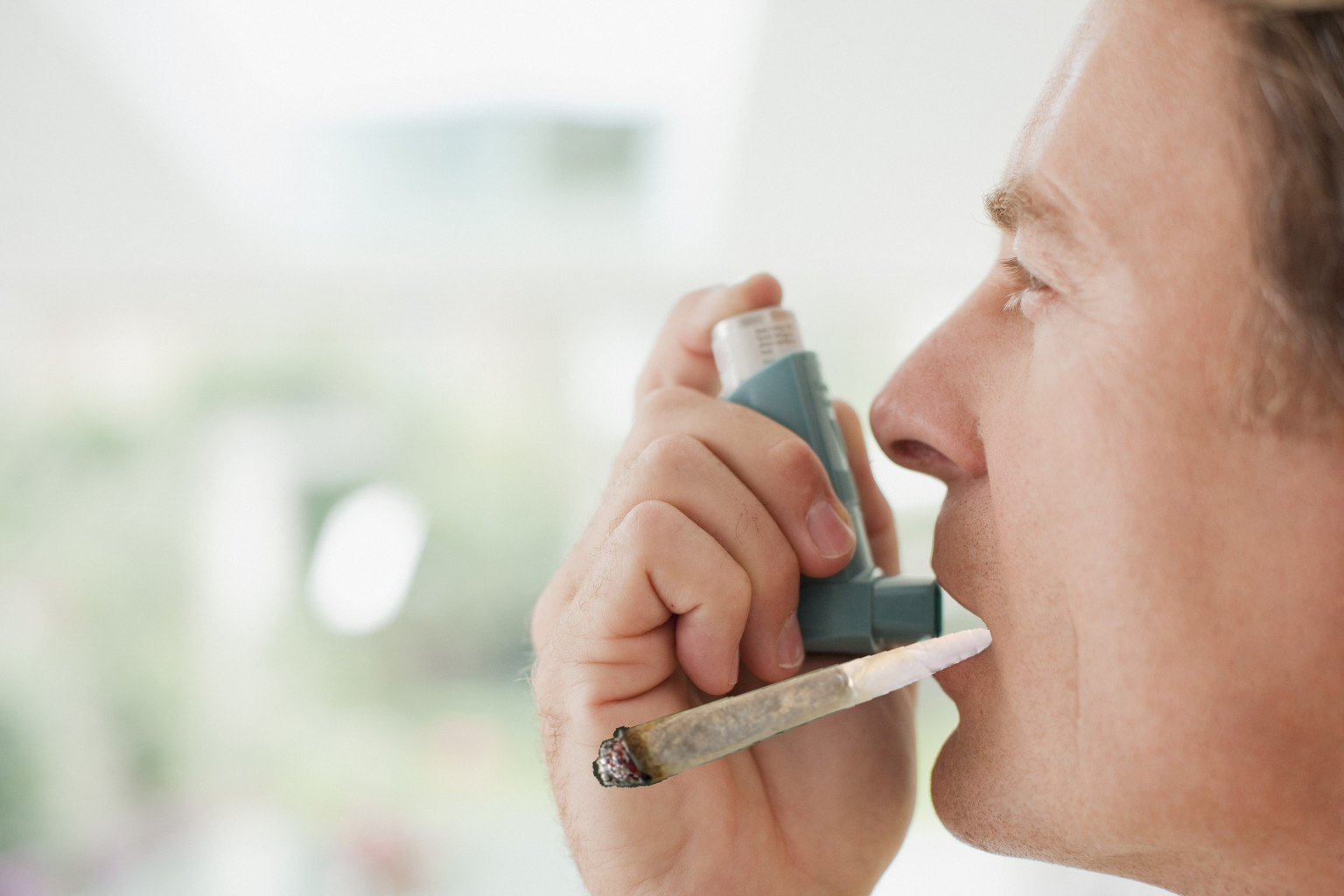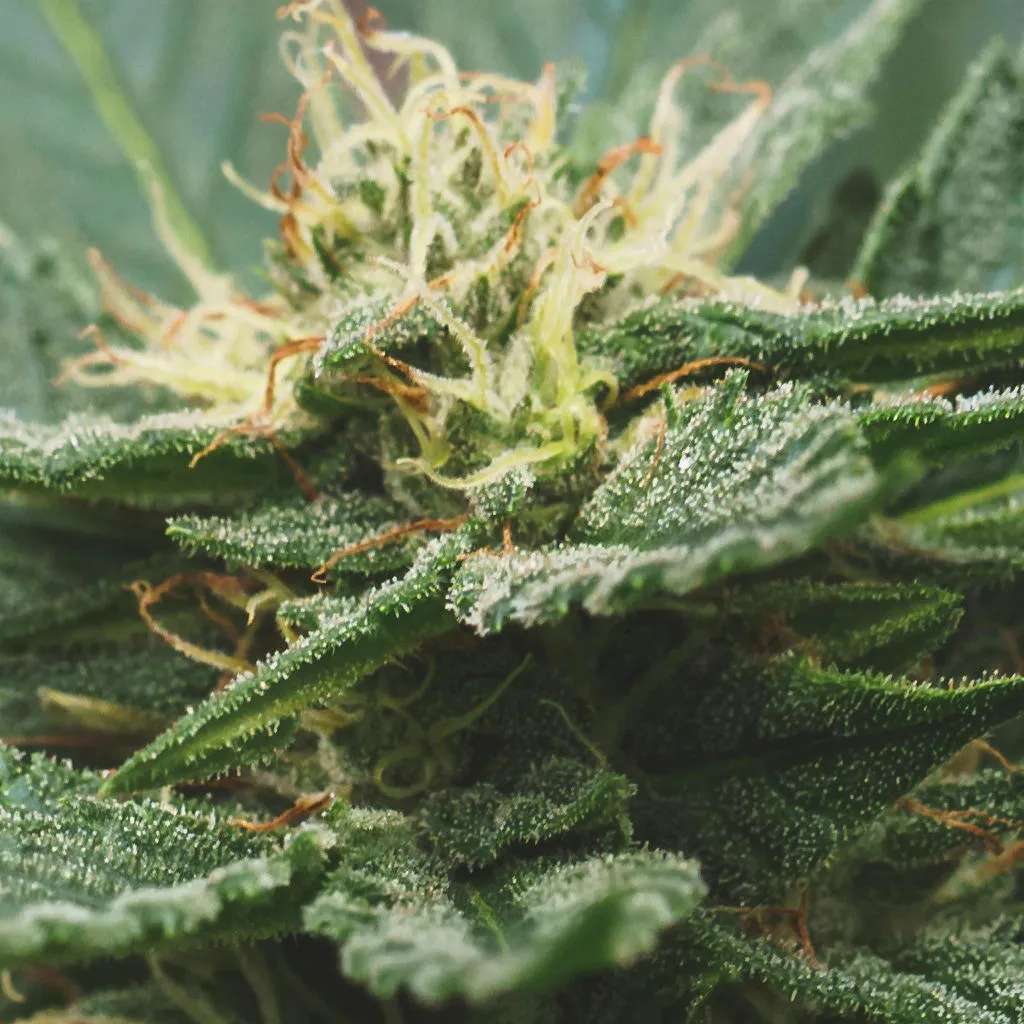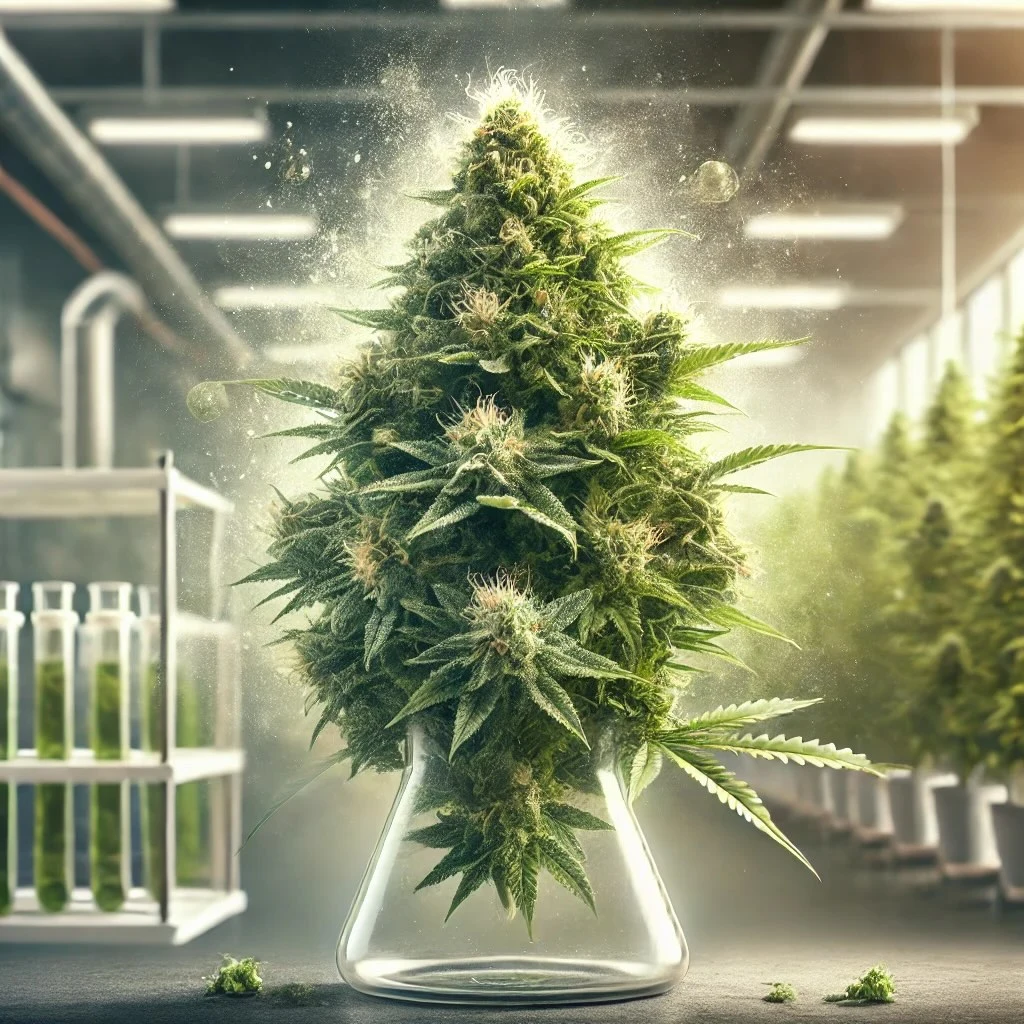Due to the fact that the most popular method of recreationally consuming cannabis is smoking, it may seem like an unlikely medical treatment for a respiratory condition. Any doctor will tell you that smoking cigarettes is not a good idea for asthma sufferers (or for anyone, really), but studies are showing that cannabis may have beneficial effects for those with asthma or other respiratory conditions—even when smoked.
Did you know that cannabis has been used as a means of treating the symptoms of asthma for millennia, in various medicinal traditions including those of ancient India and China? True story!
Our very favorite plant can actually reduce the nagging symptoms of asthma sufferers, and it can even bring much-needed relief at the onset of asthma attacks.
Does it sound weird to you?
So, find out below the 7 reasons why marijuana’s main ingredient might help patients breathe easier:
# 1. Cannabis is a pain killer
Although pain is not necessarily considered to be a primary symptom of an acute episode of asthma, studies have shown that up to 76% of patients experience chest pain during an attack. Generally, asthma-related pain is characterized by a deep ache or sharp stabbing sensation that develops gradually over the first few hours of the attack, and slowly dissipates as the attack recedes.
“The known bronchodilatory and analgesic effects of certain cannabinoids suggest that they could be useful in managing asthma-related pain both by reducing pressure and constriction in the lungs, and by acting directly at the nociceptors (pain-sensing nerve cells) themselves.”
While there are no studies that specifically investigate the ability of cannabis to treat asthma-related pain, several studies into the general effect of cannabis on asthma have noted subjective improvements in pain. The known bronchodilatory and analgesic effects of certain cannabinoids suggest that they could be useful in managing asthma-related pain both by reducing pressure and constriction in the lungs, and by acting directly at the nociceptors (pain-sensing nerve cells) themselves.
# 2. Cannabis reduces stress and anxiety
Stress is a common asthma trigger. According to one leading medical resource, “Asthma, stress, and anxiety make for a vicious circle.”
Coincidentally, THC and other cannabinoids are also vasodilators, meaning they reduce blood pressure and decrease stress. Decreased stress means less tension and slower, easier breathing for many asthma patients, some of whom suffer from only 20 percent lung capacity.
Cannabis is known to not only significantly reduce anxiety and stress, but can also minimize asthma symptoms and prevent the onset of attacks. Prevention is the best medicine, and anything that can deliver the overall health benefits of reduced stress while also both preventing attacks and decreasing the severity of asthma symptoms is a powerful tool in the medicine cabinet of any sufferer.
Indica-dominant strains in particular are a highly-effective soothing agent when anxiety over asthma symptoms sets in. In short, medical marijuana can be a completely life-changing tool for asthmatics.
# 3. Cannabis works as an antibiotic
An emerging body of research is currently looking into the potential for antibiotics to treat both the short- and long-term symptoms of asthma, and thus far, several studies have pointed to the potential for common antibiotics such as erythromycin and azithromycin to ease the acute symptoms of asthma.
Cannabinoids including THC, CBD, and CBG have been shown to have a broad-spectrum bactericidal effect against many common and infectious pathogens. One group of bacterial agents suspected of being a potential underlying cause of asthma is the Streptococcus genus, which includes S. Pneumoniae and S. aureae, has been shown in several studies to succumb to the bactericidal effect of cannabinoids.
# 4. Cannabis acts as an effective bronchodilator
The ability of cannabis to act as a bronchodilator is perhaps its most significant property in terms of the treatment of asthma. During an asthma attack, the bronchioles (the branching network of tubes that carry oxygen to the alveoli) become constricted, causing the rate of oxygen flow to drastically reduce.
Generally, the extent of bronchoconstriction during an attack is determined by peak expiratory flow measurements, which are taken from patients and compared to readings taken in normal circumstances. The difference between the normal rate of airflow and the limited airflow during an attack can thus be determined.
“Several studies have shown that administration of cannabis in various forms can significantly improve broncho-constriction both during an asthma attack and in normal circumstances”
Several studies have shown that administration of cannabis in various forms can significantly improve broncho-constriction both during an asthma attack and in normal circumstances (sufferers of severe asthma often have lower-than-average airflow compared to non-asthmatics even when an attack is not occurring). it means that it relaxes and widens these airways, allowing more oxygen to flow freely through them.
# 5. Cannabis can reduce inflammations
Asthma is considered to be a chronic inflammatory condition, as persistent, low-level inflammation has been found to occur in the bronchi and bronchioles even during non-attack circumstances.
During an attack, levels of inflammation increase, exacerbating the levels of constriction caused by muscular contractions of the bronchial tissue. Asthma-related inflammation is generally thought to be an immune response to the presence of allergens, although the immune response has not been definitively ascertained and may differ greatly between individuals.
As THC is an effective bronchial dilator, it also helps treatment for asthma and related respiratory conditions due to its anti-inflammatory properties.
Furthermore, cannabis is currently being investigated for its ability to produce targeted therapies for immune-modulated inflammatory diseases.
# 6. Cannabis can reduce muscular spasms
Cannabis’ ability to reduce muscular spasms (involuntary contractions) plays a significant role in the management of broncho-constriction during an asthma attack. The bronchi and bronchioles are composed of smooth muscle, and during an attack, they contract and narrow as well as becoming inflamed.
In a study published in 2014, researchers took bronchial lung tissue from 88 human patients and subjected it to electrical field stimulation to cause the muscle tissue to contract. They then administered THC, the endogenous cannabinoid 2-AG, and various synthetic agonists of CB-receptors type I & II. They found that certain agonists of the CB₁-receptor, including THC, reduced muscle contractions in a dose-dependent manner. Furthermore, it was observed that the endogenous cannabinoid 2-AG had no effect.
# 7. Cannabis brings better humor
In addition to regulating our internal and cellular homeostasis, cannabinoids influence a person’s relationship with the external environment.
Socially, the administration of cannabis clearly alters human behavior, often promoting sharing, humor, and creativity. By mediating neurogenesis, neuronal plasticity, and learning, cannabinoids may directly influence a person’s open-mindedness and ability to move beyond limiting patterns of thought and behavior from past situations.
Conclusion
Needless to say, much more scientific research must be done to assess the effect of various cannabis methods on asthma patients. With over 35 million people affected each year by asthma, finding safe and effective treatment options to commonly used medications that may produce adverse side effcts is essential.
Modern technology and advanced cultivation and extraction processes will eventually permit the creation of cannabis products, be they edibles, concentrates, flowers, or even pocket inhalers, that will target the exact needs of asthma sufferers with quick delivery of maximum inflammation relief right where it’s necessary, the bronchial tubes of the lungs.
Until then, asthma patients can safely vaporize cannabis flowers or concentrates anywhere they happen to be by using a variety of affordable devices. Those who prefer to smoke will also find significant relief, but, just as with vaping, it will depend on the particular strain they are using.

